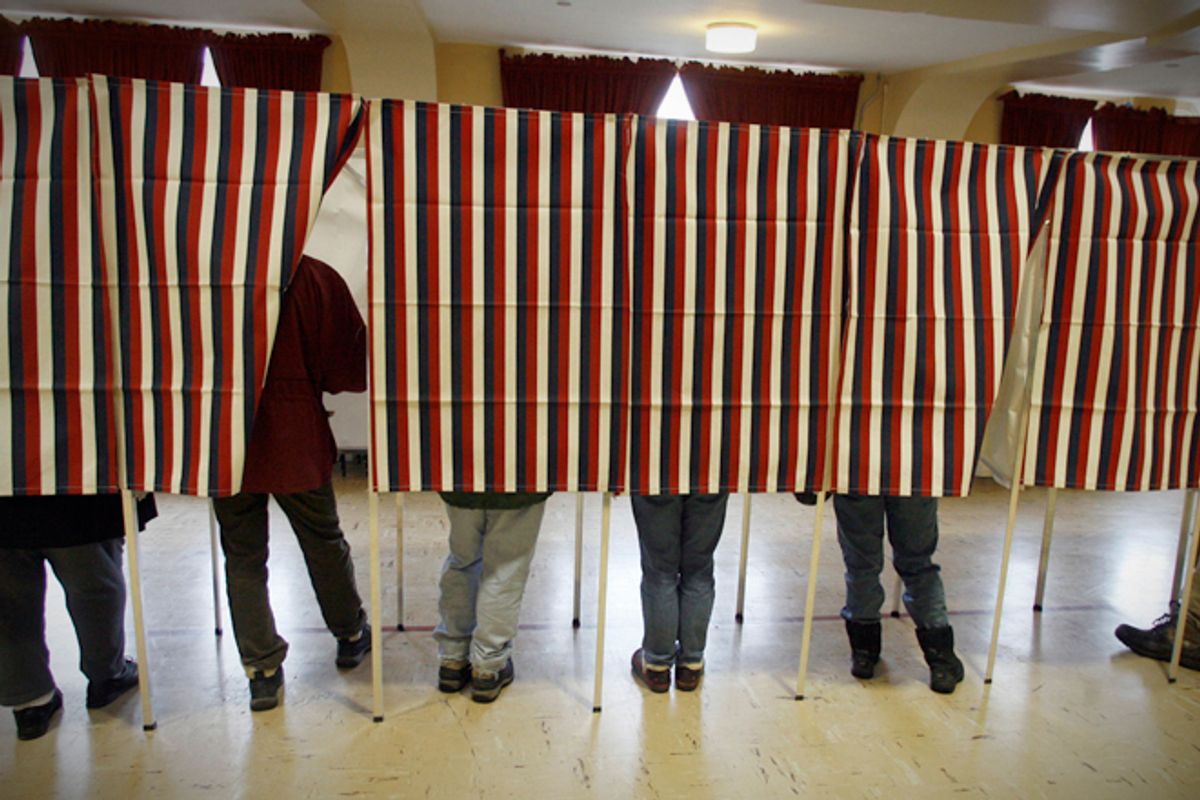 This November, the presidential election may hinge on a few thousand votes. This same November, nearly 6 million Americans will be kept from the polls, disenfranchised under a number of ever more aggressive state laws barring felons and ex-felons from the voting booth. This is detrimental to our justice system and a vicious threat to our democracy.
This November, the presidential election may hinge on a few thousand votes. This same November, nearly 6 million Americans will be kept from the polls, disenfranchised under a number of ever more aggressive state laws barring felons and ex-felons from the voting booth. This is detrimental to our justice system and a vicious threat to our democracy.
A report by The Sentencing Project estimates that these laws currently disenfranchise 5.85 million Americans. Of them, a whopping 75 percent are no longer inmates in prison or jail. Instead, they are serving parole, probation, or, in the case of 2.63 million individuals (nearly half of the entire population measured), are living in their communities freely, having already completed their sentences in full. Eleven states require a waiting period before voting after one’s sentence is complete; a lifetime ban awaits those with a felony record. The diagnosis is even grimmer when looked at by race. The report estimates that felony disenfranchisement laws in Florida, Kentucky, and Virginia each disenfranchise over 20 percent of their respective adult black American populations.
Undeniably, the convicted felon and ex-felon populations are two of the least politically popular groups facing disenfranchisement, potentially making their case for participation in democracy the most difficult. Opponents deploy a number of arguments against this crucial step toward universal suffrage. Some argue that if someone chooses not to follow the law, then he does not have the right to help select those who make the laws. They say that the right to vote is one that can be taken away as punishment—even well after an individual has completed her sentence.
Yet since the nation’s founding, a key concept prevailed and proved fundamental to democracy: the idea, explicitly stated in the Declaration of Independence, that government must derive its power from the consent of the governed. Despite having committed a crime, most felons and ex-felons are citizens, governed and affected by the decisions made in Washington. As an essential protection from government tyranny, corruption, and unjust laws, it is crucial that all citizens can (and do) contribute to the discussion of what type of society they would like to live in and what the laws dictating that society are.
Laws against voting are not common sense measures promoting the public safety or welfare. For those worried that felons and ex-felons may unite into some powerful anti-criminal justice voting bloc, think again: there is no evidence to support such a unity amongst the group, such illicit views among felons in the criminal justice system, or such single-issue behavior. Like the rest of us, felons who choose to vote have a number of political ideas to balance in the booth.
On top of all of this, public opinion here leans in favor of universal suffrage. Recent studies show that a clear majority favor restoring voting rights specifically to people who have exited prison and have served their entire sentence, are on parole, or are under supervised probation.
Voting is essential to a valid democracy. It is both a right and a duty—not a privilege. It is fundamental to the rigorous and diverse discussion required by our society. Yet this November, nearly 6 million citizens will be barred from the voting booth, silenced and ostracized. This number begs the question: how can this be right? We at the Roosevelt Institute | Campus Network want to ask this question through Government By and For Millennial America, our new initiative focused on identifying the current problems in our government and providing solutions to create a better, more equal, and more accountable framework. Our polished vision will be ready to be put in place by Inauguration Day this January. Stay tuned.



Shares